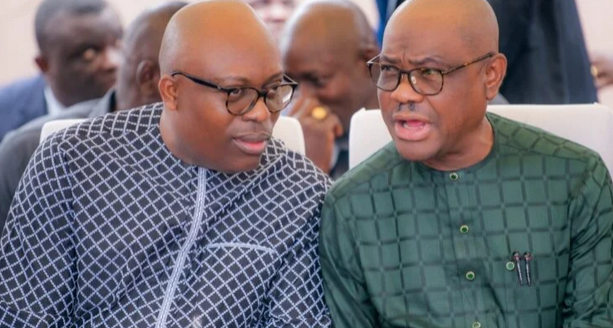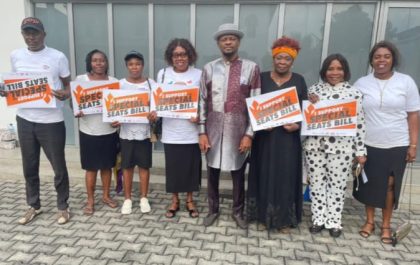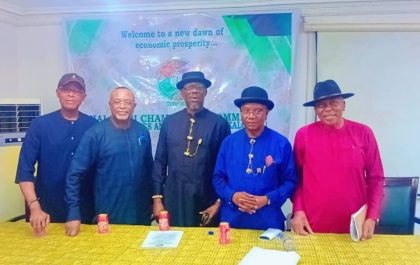By king Eze
Niger-Delta region, Rivers State is once again caught in a political crossfire. The auspended Governor of the State, Siminalayi Fubara, once the Accountant-General under former Governor Nyesom Wike, initially governed under the heavy shadow of his predecessor, and refused to wield the insider knowledge he possessed nack then.
Sim was not just Wike’s technocrat, he was the custodian of all financial records from 2019 until 2022, overseeing billions in FAAC allocations and internally generated revenue.
Yet as political tensions rose and the Rivers State House of Assembly, backed by Wike, challenged his authority, yet Sim remained silent on Wike’s fiscal legacy.
The fallout from the ensuing strained relationship between the suspended Governor and his master has seen the state’s 2024 budget entangled in power politics, with President Bola Tinubu reportedly stepping in to mediate.
This has effectively placed Rivers State’s finances under federal scrutiny, whoch is an anomaly in Nigeria’s federal system.
While many expect Fubara to expose the past, he appears focused on consolidating his base. His silence may be strategic, but the people of Rivers staring at stalled projects and suspended governance, are left to ask, “At what cost?”
In the volatile theatre of Nigerian politics, silence is rarely neutral. In Rivers State, Governor Siminalayi Fubara’s enduring silence amid budgetary and political tremors has become a focal point in the power struggle shaping the future of the Niger Delta’s economic powerhouse.
Several critical observers of the political drama in Rivers State are agreed that more than a Governor, Sim is a man who once had access to every kobo that passed through Rivers State’s coffers, yet he has chosen not to use that knowledge as ammunition against his former boss and current rival, Nyesom Wike. They ask, why?
A Man of Numbers: Siminalayi Fubara as Accountant-General
Before emerging as the unlikely gubernatorial candidate in the twilight of Wike’s administration, Fubara served as the Accountant-General of Rivers State, the apex financial technocrat responsible for managing and supervising the state’s budget, expenditure, procurement processes, and internal audit structures.
Appointed in 2019, Fubara succeeded in gaining the trust of the powerful Governor Wike by quietly navigating the inner workings of a financial system tightly controlled by the former administration.
As Accountant-General, Sim had complete visibility into the state’s ₦2.7 trillion cumulative budget over Wike’s 8-year tenure (2015–2023). From infrastructure megaprojects like the twelve newly built flyovers in Port Harcourt, to the monorail project debacle, and the infamous Rivers State Government House spending spree, Sim saw it all. He processed approvals, ensured the release of funds, and oversaw fiscal compliance, if any existed.
When Sim’s name came up as Wike’s handpicked successor in 2022, many insiders saw it as a masterstroke: a loyal technocrat who could be trusted not to rock the boat, even if he captained it.
Why Won’t He Speak?
Fast forward to 2024–2025, when the political honeymoon became over, Wike, now Federal Minister of the Federal Capital Territory (FCT) under President Bola Tinubu’s cabinet, has become a towering presence in Abuja while continuing to influence Rivers politics from behind the scenes.
His allies in the Rivers State House of Assembly have attempted to undermine Sim’s authority through legislative ambushes and budgetary sabotage.
When the 2024 budget crisis stated, Fubara attempted to re-submit a budget, only to be rebuffed by a Wike-dominated assembly loyal to Abuja.
Matters escalated when President Tinubu personally intervened, reportedly mediating a secret peace deal that essentially placed Rivers’ budget under federal oversight. Critics call it a constitutional anomaly; supporters call it political damage control.
Yet, despite being undermined, Sim has refused to blow the whistle on Wike’s alleged mismanagement or excessive spending during his tenure. Sources close to Government House whisper of non-disclosure pacts, internal loyalty codes, and the fear of political suicide in a region where Wike still commands loyalty among key power blocs.
State of Rivers State’s Budget System
Rivers State has always been one of the richest sub-national economies in Nigeria, generating between ₦100 billion to ₦120 billion annually in Internally Generated Revenue (IGR) and receiving over ₦300 billion annually in FAAC allocations.
Under Wike, the state maintained a reputation for aggressive capital spending, with limited transparency and no external audits released to the public.
Today, with the budget impasse unresolved, Rivers State risks running on autopilot. Civil service salaries and basic government functions are being maintained, but new capital projects have stalled.
Contractors are owed, procurement processes are frozen, and political appointees now tread carefully in an atmosphere of suspicion and federal surveillance.
Furthermore, the role of the Federal Government in monitoring or controlling Rivers State’s finances is raising constitutional concerns. Nigeria operates a federal structure, yet the Tinubu-Wike alliance has effectively turned Rivers into a test case for political trusteeship, with Abuja watching every fiscal move.
Political Gladiator, in a quiet manner
Siminalayi Fubara’s quiet defiance is perhaps his greatest political strength. Despite being pushed aside to the margins by his predecessor, he has refused to resign, retaliate, or rebel openly.
Instead, he is building a quiet resistance, dismissing Wike’s loyalists from his cabinet before his suspension, empowering grassroots support, and re-establishing his own political identity across the Ijaw-speaking communities of Rivers South-East and the Andoni heartlands.
His political messaging, when it comes is wrapped in metaphors and cultural references, never direct accusations. While many of his supporters urge him to “open the books” and expose Wike’s alleged financial manipulation, Sim has instead chosen to wield silence as strategy.
Perhaps he is playing the long game. After all, in Nigerian politics, loyalty today can turn into leverage tomorrow.
Rivers State occupies a strategic oil-rich zone in the Niger Delta. It is home to Port Harcourt, the unofficial oil capital of Nigeria and headquarters to multinationals like Shell, Total, and NLNG. Control of the state means influence over a significant portion of Nigeria’s energy economy.
It is for this reason that Rivers State has become the epicenter of national power struggles, from the era of Peter Odili to Rotimi Amaechi, to Nyesom Wike, and now to Sim Fubara.
Budget control, political appointments, and public contracts are not just matters of governance, they are weapons in a larger war of survival and succession.
Man in the Middle of a Storm
Siminalayi Fubara finds himself trapped between loyalty to the man who made him, and responsibility to the people who elected him. He holds in his hands the financial truths of Wike’s 8-year rule, but refuses to spill them. Whether out of fear, strategy, or principle, this silence speaks volumes.
In a state where power has always been loud and flamboyant, Sim’s quietness is not weakness, but calculated. But for how long can an accountant-turned-gladiator keep his secrets when the political stakes are this high?
Related posts
Subscribe for newsletter
* You go receive the latest tori wen you put your email



